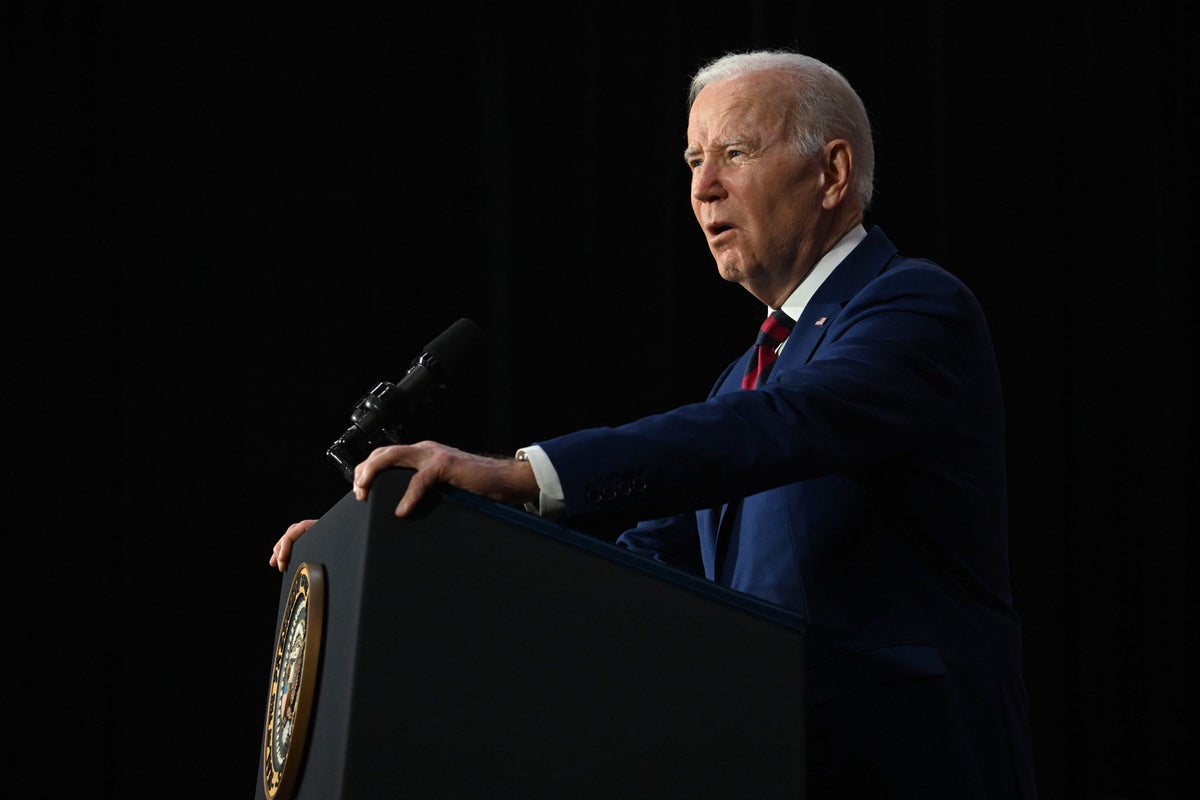
On Tuesday, President Joe Biden announced his latest executive action to curb gun violence, likely the most comprehensive action he could take for the duration of his presidency given the current makeup of Congress.
Mr Biden signed the order in Monterey Park, California, where a gunman killed 11 people and injured nine before he killed himself following a Lunar New Year festival in a largely Asian-American community. The executive order would require that all background checks for firearms that are required by law occur prior to a firearm purchase.
“My executive order directs my attorney general to take every lawful action possible possible to move us as close as we can to universal background checks without new legislation,” the president said.
It’s likely the strongest step Mr Biden can take without Congress acting to pass additional gun control laws.
The executive order would attempt to improve public awareness of “red-flag laws,” which allow for people to petition a court to prevent someone from obtaining a firearm if they pose a danger to themselves or to others. Currently, 19 states and Washington DC have red flag laws and the bipartisan gun law that passed last year included a grant programme to encourage more states to pass them.
“It’s just common sense,” he said.
The new provision is meant to provide awarneness among “law enforcement, health care providers, educators, and other community leaders.” The Transportation Department would also work with the Justice Department to reduce the loss and theft of guns during shipment.
On top of that, the executive order includes various measures to hold the gun industry accountable, such as requiring to US Attorney General Merrick Garland to release records from the Bureau of Alcohol, Tobacco, Firearms and Explosives (ATF) about inspections of firearms dealers cited for violations of the law.
Furthermore, the executive order would require that federal law enforcement agencies issue requirements for local law enforcement agencies to submit data to the National Integrated Ballistics Information Network (NIBN), which allows for federal, state and local law enforcement to try and match cartridge casings to guns from which they were fired.
The order also requires the attorney general, as well as the secretaries of Health and Human Services, Education and Homeland Security to describe what actions each department has taken to implement the Bipartisan Safer Communities Act within 60 days. Congress passed the bill and Mr Biden signed it into law last year, making it the first major piece of gun legislation to pass Congress in 28 years.
Mr Biden’s order also directs multiple federal agencies to develop a proposal on how the federal government can better support survivors of gun violence, their family members and first responders.
Lastly, the president said he calls on Congress to pass a law that prevents the proliferation of guns that metal detectors cannot track.
Mr Biden’s executive order saying that he would simply call on Congress to act shows how limited his powers are on the issue of guns.
He signed the legislation on gun violence last year after a shooting at Robb Elementary in Uvalde, Texas, prompted Republican Senators John Cornyn of Texas and Thom Tillis of North Carolina to team up with Democratic Senators Chris Murphy of Connecticut and Kyrsten Sinema of Arizona, who has since become an independent.
That legislation soon passed the House, but since then, Republicans have taken control of the lower chamber, reducing the chances of any major gun legislation passing.
“None this absolves Congress from the responsibility to act, to pass universal background checks, eliminate gun manufacturers’ immunity from liability,” the president said to applause.
Gun violence has long been important to Mr Biden. As a senator, Mr Biden served as chairman of the Senate Judiciary Committee and helped pass the federal Assault Weapons Ban in 1994, which expired in 2004.
“I led that fight to ban them in 1994,” he said. “For 10 years that law was in place mass shootings went down.”
Since then, he has focused intensely on reauthorising an assault weapon ban. But with a slim Democratic majority in the Senate, along with a Republican House, an assault weapons ban faces a steep uphill climb.

.png?w=600)





